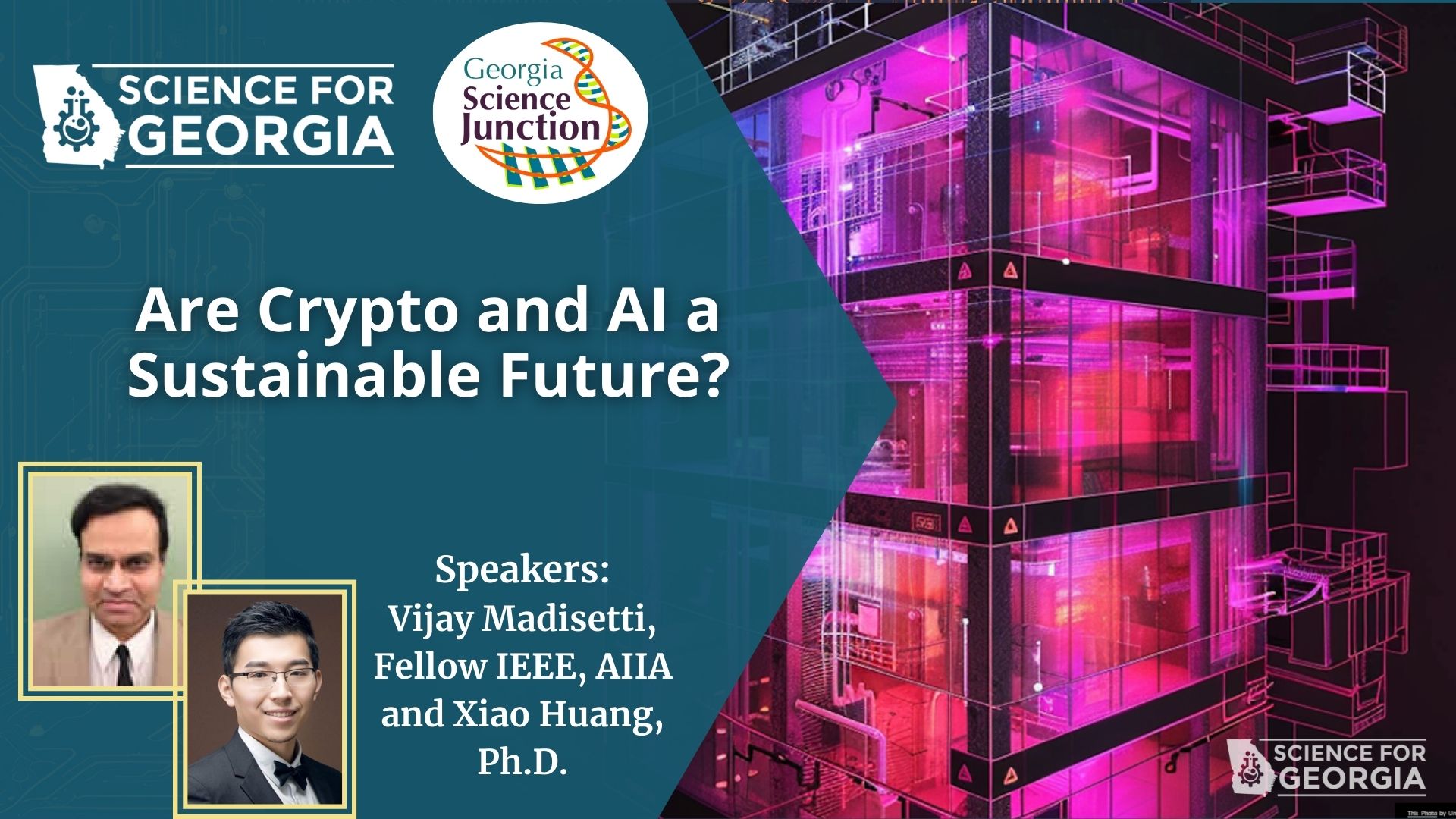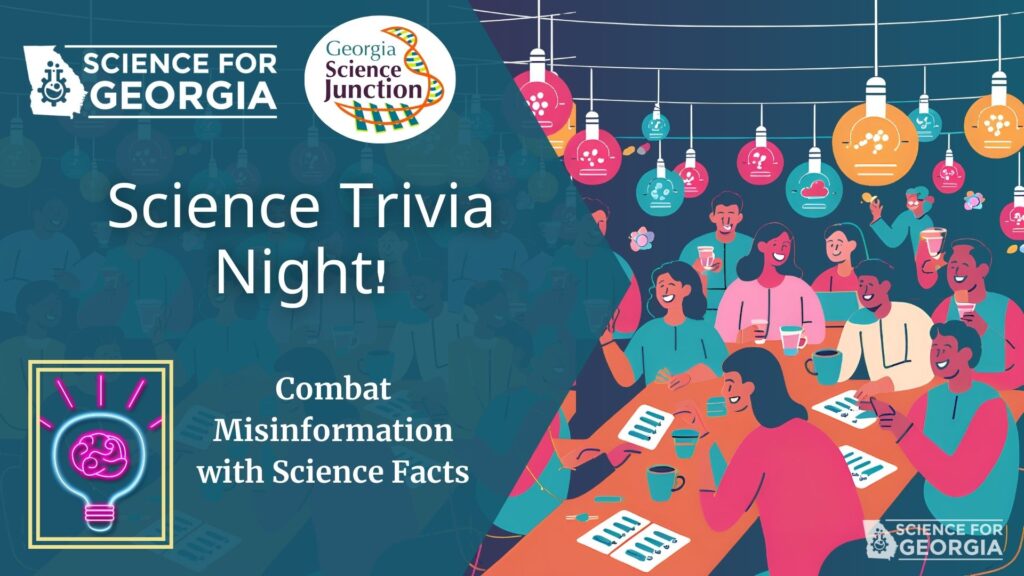
- This event has passed.
Georgia Science Junction – Are Crypto and AI a Sustainable Future?
October 3, 2024 @ 7:00 pm - 9:00 pm
$5 – $10
*Rescheduled from Sept 26th to Oct 3rd due to Hurricane Helene*
All tickets purchased for previous date will be honored for the new date. If you can not attend the new date, please contact us at [email protected] for a refund. Please stay safe during this inclement weather.
October 3rd, 7pm – 9pm
In-Person and Streaming
Location: Lounge Area, Wild Heaven, West End, 1010 White St SW, Atlanta, GA 30310
Featured Speakers: Vijay Madisetti, Fellow IEEE, AIIA and Xiao Huang, Ph.D.,
Are Crypto and AI a Sustainable Future?
In current practice, Crypto Mining and Artificial Intelligence algorithms are very power hungry.
We just turned on two new reactors at Plant Vogle and 1 Plant Vogle Reactor (1.2 MW) can serve 1.2 million households OR about 6 Data Centers. As our power bills keep rising, and average humans look for ways to lower their energy consumption, will Crypto and AI gobble-up the gains we are making? Fortunately, researchers are working on new, energy-efficient algorithms. Join us to learn why the current practice is so very hungry and about new algorithms that can provide the same, or better, computation at a fraction of the power usage.
More About Our Speakers:
Vijay Madisetti earned a Bachelor of Technology (Honors) degree from the Indian Institute of Technology (IIT), Kharagpur, India, in Electronics and Electrical Communications Engineering in 1984. Following this, he went to the University of California at Berkeley where he earned a Ph.D. in Electrical Engineering and Computer Sciences in 1989.
Dr. Madisetti joined the ECE faculty at Georgia Tech in 1989. He leads several research and educational programs at Georgia Tech in the area of digital signal processing, embedded computing systems, chip design, wireless and telecom systems, and systems engineering. He has authored or edited several books, including VLSI Digital Signal Processors (1995) and the Digital Signal Processing Handbook (Second Edition, 2010). He is also a frequent consultant to the industry.
Dr. Madisetti is a Fellow of the IEEE and was awarded the 2006 Frederick Emmons Terman Medal by the American Society of Engineering Education (ASEE) and HP Corporations for his contributions to electrical engineering. He is currently serving on several campus initiatives, and is the Executive Director of Georgia Tech’s India Initiative. Dr. Madisetti also received the Georgia Tech Doctoral Thesis Advisor Award from Georgia Tech in 2001.
Xiao Huang, Ph.D., Assistant Professor, Department of Environmental Sciences, Emory University


